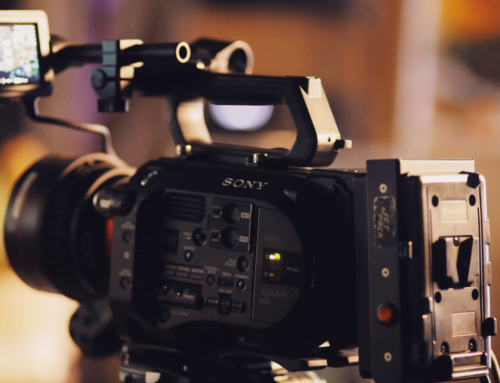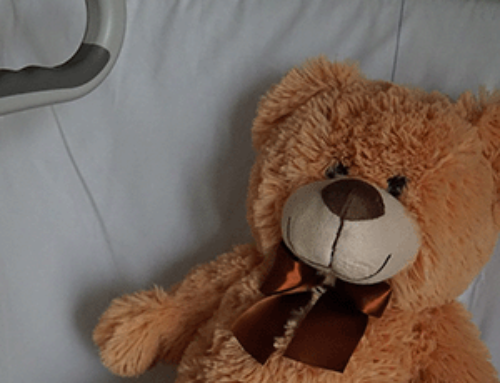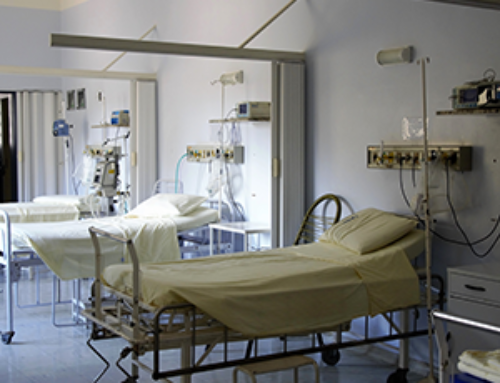Who is Carson Kawabata?
Who is Carson Kawabata?
BY: CARSON KAWABATA
Muhammad Ali once said, “He who is not courageous enough to take risks will accomplish nothing in life.“
My name is Carson Kawabata, I am currently 17 years old, and I live in Salt Lake City, Utah. When I was born on March 16, 2005, I had mild jaundice for an extended period. Initially, my pediatrician was not concerned until I did not grow between the ages of two and three. He then explored thalassemia and sickle cell anemia based on the count of my red blood cells. Once I turned three, I could tell my great-grandmother who babysat me what I wanted to eat. My routine daily snacks included 4 boiled eggs, 4 servings of cheese, 32 oz of milk, and fruit. I self-regulated even though I didn’t know I had a citrin deficiency.
Since I was able to self-regulate at such a young age, my annual lab results came back normal, and the pediatrician had stopped searching for the initial cause. I was lucky that my great-grandmother let me eat whatever I wanted, at any given time. In hindsight, my parents later shared that when I was a baby, I screamed if I did not get milk immediately when I was hungry. As a result, my grandmother would have my milk ready 30 mins before I would get hungry.
Early years
During my preschool years, my parents and teachers were a little concerned that I was really shy and had the tendency to focus on one thing for hours. For example, I could complete 100-piece puzzles from when I was three. I did not start on the edges but rather picked a part of the puzzle that I liked and worked out from there. When I was a baby, I would pretend to be asleep if strangers came near me. My family called it “playing possum.” As I was noticeably shorter than the rest of my class, I felt like I just didn’t fit in and didn’t know how to make friends at school. I tried different sports like baseball, soccer and basketball. However, due to my shy nature, I did not excel in those sports early on.
At home, I was generally very happy and content as I was surrounded by a close extended family. I liked figuring out how things worked and memorizing Pokémon and animal statistics. I had an iPod from an early age because I travelled a lot from 6 months old to 4 years old. My great-grandmother travelled with my mother and me when she had to work in different places including San Francisco, Chicago, Kalispell, and even Tokyo, Japan.
Unique characteristics from a young age
At the end of kindergarten, my teachers and parents wanted to make sure that I did not need special accommodations as it was noticeable that I could play on my own for hours and was not interested in social interactions at school. My testing came back with some characteristics of high functioning Asperger’s. However, the psychologists were perplexed as many of the key characteristics were not in line with Asperger’s. We filed the report with the school and had documentation in case more issues arose that required it.
I continued to have regular annual appointments with my pediatricians to watch the progress. My ability to draw or stay engaged in one activity for hours was also a unique characteristic for my age. I could also draw and replicate many things with my visual memory.
Diagnosed with citrin deficiency at the age of six years old
At the age of six years old, my sister was born at St. Mark’s hospital. She went through the new-born screening process that was implemented in 2006 (one year after I was born). After several tests, including DNA testing, she was diagnosed with citrin deficiency. The doctors also found out that I have citrin deficiency and that both of my parents were recessive carriers of this rare deficiency. While this explained my unusual eating habits as a child, I did not modify my diet significantly since prior to being diagnosed as I had already learned to self-regulate my diet with high protein and low carbohydrates. However, my parents did make a more conscious effort to monitor my intake and educate others about my required diet. Since my sister and I were the only children diagnosed in the state (and many neighboring states), we had to “guess” on how to manage the deficiency early on.
Diet and exercise
Over the years, as I became more active, I had to learn to “listen to my body” even more so with my diet still being monitored to this day. I have a large appetite since I do not fill up on carbs and proteins do not last as long in my system. As an athlete, beginning at the age of seven years old, I played soccer, baseball, basketball, and golf, and studied martial arts. When I was younger, I was playing at a golf course, and I started to play very poorly. My aunt noticed the change and rushed me to the clubhouse and ordered me a half pound hamburger. Within 10 minutes, I was back on the course playing back to normal.
It is these experiences that helped me better understand how my body reacts to low protein levels, and I have learned to better manage it as I get older and more experienced. As my activities required increased time and energy, I had to pace my protein to last through golf tournaments in particular (5 hours). To get through tournaments, I would eat breakfast that consists of one cup of oatmeal, 12 oz of 2% milk, 1 Chobani Greek yogurt, and my vitamins, MCT oil, and L-Arginine. For lunch, I had a sandwich with 5-6 slices of large slices of deli meat with two slices of cheese, lettuce and mayonnaise. During my golf tournaments, I drink three Premier Protein shakes from Costco with 30 grams of protein each. I drink one every 5 holes or approximately every 90 mins. For dinner, I usually eat about 8-12 oz of protein (beef, chicken, or fish) with plain steamed vegetables and salad. I occasionally eat ice cream for birthdays or celebrations.
Strengths and weaknesses in elementary school
In elementary school, my parents and I learned a lot about my strengths and weaknesses and how my condition and diet may have affected them. For example, I’ve always had a strong visual memory and I could imprint images and text. This was seen through my uncanny ability to do 100-piece puzzles when I was three years old. I was also naturally good at math where memorizing formulas and equations continued to prevail.
However, I struggled to make new friends and I was not good at communicating my thoughts in an organized manner. In fact, I’ve always been able to mechanically read (memorize rules), but I struggled with reading comprehension, and this inevitably led to some confidence issues as I got older. During these years, I also established a love for art, piano, taekwondo, and golf. These activities helped me relieve stress since I was still smaller in stature than most of the other children and I was not interested in group activities. I was lucky to attend a small private school where the teachers were aware of my condition, and they were willing to help me through some of the social challenges. My parents tried to reinforce that weaknesses and mistakes are not bad, you just have to work to improve them and try to avoid making the same mistakes over and over.
Junior high
When I entered junior high, I took it as an opportunity to branch out and meet more people, and I continued to grow. It started out well, I had a lot more friends in 6th grade, and I was doing very well in school. However, as always, I was still learning from my mistakes. Things were going well until I lost my great-grandmother in 7th grade. She was a great mentor to me, and she helped me feel confident and strong. The lessons that I learned from her are the primary reason that I am the person that I am today.
When I lost her, I felt like I lost myself. It took a substantial amount of time for me to find myself again. Leading me down a long rollercoaster of emotions and wandering into the unknown. This led to another aspect of me that has been a part of managing my condition. If I go too long without protein intake, I experience “low protein,” a phrase I’ve been using over the past few years. I get sluggish and lethargic. I also experience some impulsive behaviors where I have made some terrible mistakes. In those moments, it almost feels like I was a different person, letting my emotions control my body. While it took me a long time to recover from those mistakes, I have luckily learned how to manage my protein levels and they happen less frequently as I have gotten older and more experienced.
As I advanced to 8th grade, I continued to learn more about myself as a person, reader, and writer. It’s hard to judge how much practice I missed in elementary school when I was memorizing the stories. When I became aware of the fact that middle school was harder and my reading ability was still behind, my insecurities grew. I found myself lying about the books that I was reading in an effort to look better at reading. I quickly learned that misrepresenting my abilities was not the right answer. My teachers and family helped me through the lessons, and I was able to regain some confidence. I also experienced some great friendships and unfortunate break-ups during junior high. The social aspect of school has always been a little challenging and continued through high school. Despite all the challenges, I continued to thrive with math and science and my extracurricular activities and sports.
High School
The transition to 9th grade started out well. I felt like it was a fresh start. However, I still felt like I was missing something. I qualified for the varsity golf team and maintained the second position for most of the season. However, I didn’t realize that my insecurities due to my physical size, my processing speed with reading and writing combined with my impulsive behavior when my protein levels were not managed, led to frustration and confusion about my identity. I found myself trying to be someone that I wasn’t. At some point, I lost a few good friends because I felt guilty about trying to be someone else. This led to a dip in my grades, but I was able to recover by the following semester. Things were looking up again until COVID 19 hit in the middle of my freshman year.
I had high hopes at the beginning of 10th grade that I had finally recovered from the rollercoaster of emotions and learning lessons. But with the continued COVID 19 restrictions and alternating class schedule on-campus and then remote learning, I still found myself struggling with these impulsive issues with school and friends. In March 2021, I felt a feeling like never before and that was when I felt dissociative and questioned “why was I given this deficiency?” When my school heard about my feelings and situation from other students, they recommended emotional support counselling. I tried this for several weeks prior to the summer. However, I decided to change my mindset with guidance and support from my taekwondo master, parents, and family. Over the past two years, I have mastered my emotions better, even during “low protein” phases. I take more time to enjoy the activities that I love, and I have a much better understanding of who I have become.
Accomplishments and awards
Despite all the challenges and learning lessons, I have experienced receiving several awards and personal accomplishments over the years. I received my 4th-degree black taekwondo after training for 10 years. I volunteer time teaching other martial artists who are learning life skills through martial arts. I have competed in multiple international tournaments earning gold, silver and bronze medals and participating in large demonstrations.
I competed for four years on the boys’ varsity golf team and earned All State Second Team recognition. I volunteer as a coach for The First Tee of Utah and was selected to participate in the Leadership Summit in Montana this year. I have multiple acrylic paintings that have been selected by the local zoo art show and I received the youth award for one of the pieces. Overall, I have accepted my life with Citrin Deficiency, but I have not let it stop me from working hard and accomplishing many things along the way.
In summary
I wanted to share my story and hopefully help others realize that there are some real challenges growing up with an unknown protein deficiency. Also, the Citrin Foundation has supported me and my efforts to share my story and provide the opportunities for me to learn more about the science behind it. I am interested in helping Citrin Foundation find a cure and mitigate the effects on young children with citrin deficiency. I want more people to know about the deficiency through education and sharing. In my personal opinion, I feel like it would be very helpful to people like me to know that the effects of citrin deficiency can be better documented and tested and ultimately cured. I see myself contributing by furthering my computer science skills to help doctors with their continued research to learn more about what is best for patients with citrin deficiency and other metabolic conditions.
Future project
For the past couple of years, I have been trying to organize and develop a research-based app where patients with citrin deficiency can log their food and have doctors monitor their logs. I want to find ways to help kids be motivated to log their food as this information is very vital to help patients manage the effects of food and medication. With this desire, I also found a huge thing that motivates me in life is to help people through life’s challenges. I can relate in many ways to those struggling to understand why they have a rare long-term deficiency.
While I hope my story will provide some insight and hope, we all have to work together to make a difference and find a cure or at least mitigate the risks until a cure is found. I know at the end of the day; I have failed countless times and probably will continue to do so. However, when I feel alone in the dark, I know there will eventually be light. because I have accepted that I have a rare disease and I want to help others. I know I can help people through the unknown because I’ve been able to navigate it with help. If I can help others with the development of this app, I would be happy knowing that this could potentially be something to unite patients and doctors alike. Down the line, through research and time, we can hopefully find a cure for citrin deficiency.
Thank you for reading!









